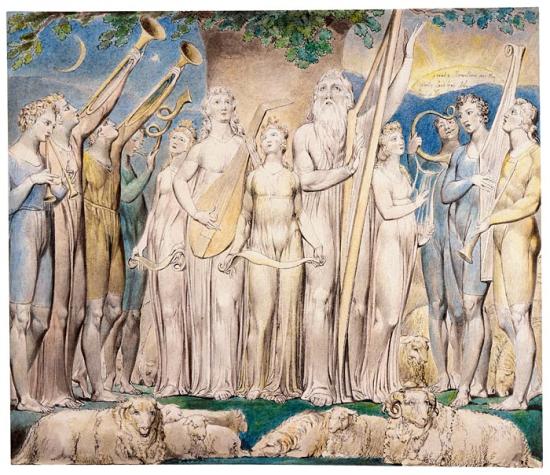
Chapter 41 (Tuesday of Holy Week)
‘Can you draw out Leviathan with a fish-hook,
or press down its tongue with a cord?
Can you put a rope in its nose,
or pierce its jaw with a hook?
Will it make many supplications to you?
Will it speak soft words to you?
Will it make a covenant with you
to be taken as your servant for ever?
Will you play with it as with a bird,
or will you put it on a leash for your girls?
Will traders bargain over it?
Will they divide it up among the merchants?
Can you fill its skin with harpoons,
or its head with fishing-spears?
Lay hands on it;
think of the battle; you will not do it again!
Any hope of capturing it will be disappointed;
were not even the gods overwhelmed at the sight of it?
No one is so fierce as to dare to stir it up.
Who can stand before it?
Who can confront it and be safe?
—under the whole heaven, who?
‘I will not keep silence concerning its limbs,
or its mighty strength, or its splendid frame.
Who can strip off its outer garment?
Who can penetrate its double coat of mail?
Who can open the doors of its face?
There is terror all around its teeth.
Its back is made of shields in rows,
shut up closely as with a seal.
One is so near to another
that no air can come between them.
They are joined one to another;
they clasp each other and cannot be separated.
Its sneezes flash forth light,
and its eyes are like the eyelids of the dawn.
From its mouth go flaming torches;
sparks of fire leap out.
Out of its nostrils comes smoke,
as from a boiling pot and burning rushes.
Its breath kindles coals,
and a flame comes out of its mouth.
In its neck abides strength,
and terror dances before it.
The folds of its flesh cling together;
it is firmly cast and immovable.
Its heart is as hard as stone,
as hard as the lower millstone.
When it raises itself up the gods are afraid;
at the crashing they are beside themselves.
Though the sword reaches it, it does not avail,
nor does the spear, the dart, or the javelin.
It counts iron as straw,
and bronze as rotten wood.
The arrow cannot make it flee;
slingstones, for it, are turned to chaff.
Clubs are counted as chaff;
it laughs at the rattle of javelins.
Its underparts are like sharp potsherds;
it spreads itself like a threshing-sledge on the mire.
It makes the deep boil like a pot;
it makes the sea like a pot of ointment.
It leaves a shining wake behind it;
one would think the deep to be white-haired.
On earth it has no equal,
a creature without fear.
It surveys everything that is lofty;
it is king over all that are proud.’
Commentary
For he too, although he was rich, lost everything because of God. But he bore well the struggles with patience and was magnanimous in everything which he suffered and said: "The Lord gave, the Lord has taken away; as it has pleased the Lord so is it done. Blessed be the name of the Lord." Because of this, behold what finally is written about him: "He received back twice as much," Scripture says, "as he had lost." Do you see what it means to lose something for God? It means to receive it back multiplied. (Origen of Alexandria; Homilies on Genesis)
Musical Selection
O God beyond all praising,
we worship you today
and sing the love amazing
that songs can not repay,
for we can only wonder
at every gift you send,
at blessings without number
and mercies without end.
We lift our hearts before you
and wait up on your word;
we honour and adore you,
our great and mighty Lord.
Then hear, O gracious Saviour;
accept the love we bring,
that we who know your favour
may serve you as our king,
and whether our tomorrows
be filled with good or ill,
we'll triumph through our sorrows
and rise to bless you still:
to marvel at your beauty
and glory in your ways,
and make a joyful duty
our sacrifice of praise.
Collect
enable us to celebrate worthily
the mysteries of the Lord’s passion and death
and so experience the grace of your tender pardon.
We ask this through our Lord Jesus Christ, your Son,
who lives and reigns with you in the unity of the Holy Spirit,
God for ever and ever. Amen.